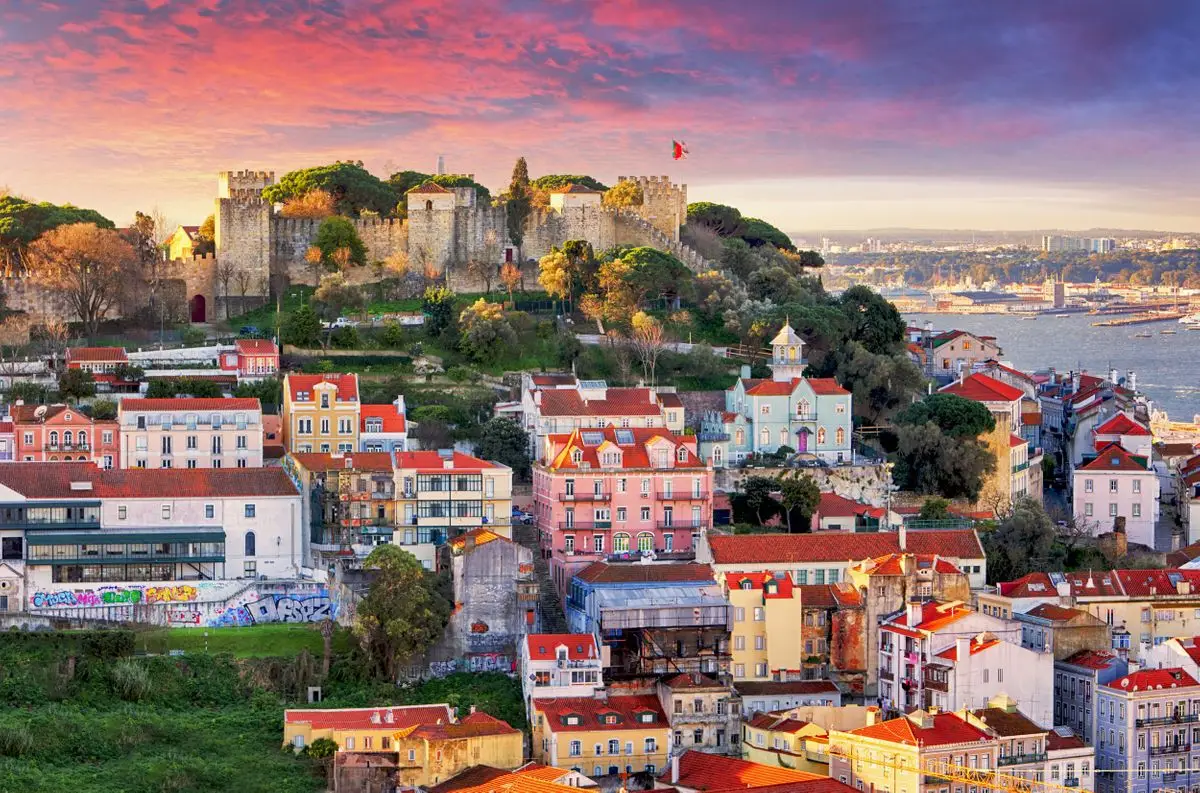Mortgage in Portugal for foreigners confidently retains the status of a sought-after instrument for purchasing residential or investment property in the European Union. The country offers not only a sunny climate and a stable economy, but also loyal financial mechanisms for non-residents. Portuguese banks willingly lend to international buyers, forming conditions that combine predictability, a moderate rate and transparent procedure for registration.
Demand for property is not decreasing. Foreign investors are actively considering the purchase of flats and houses in Lisbon, Porto, Algarve, Madeira and the Azores. Mortgage in Portugal for foreigners gives the opportunity to purchase an object worth from 150 000 euros with a down payment of 30% and a term of up to 35 years. At the same time, the loan rate starts at 3.1%, and the package of documents remains compact and understandable.
Basic mortgage conditions for foreigners in Portugal
Financial institutions offer foreigners a wide range of conditions based on their ability to pay, income structure, citizenship and purpose of purchase. Each bank sets its own parameters, but the general principle remains stable for a number of positions.
Key characteristics:
-
Loan term – from 5 to 35 years.
-
The minimum down payment is 30% of the value of the property.

-
Interest rates range from 3.1 per cent to 5.2 per cent per annum.
-
The currency of the mortgage is exclusively in euros.
-
Borrower’s age – from 18 to 70 years old at the time of the last payment.
-
Property type – ready-made housing, new buildings, secondary market, investment apartments.
Mortgage in Portugal for foreigners applies to residential and commercial properties, but the conditions for the second type are tougher: the term is shorter, the rate is higher, control over the origin of income – stricter.
Procedure for foreigners: how to apply for a mortgage in Portugal
 There are several mandatory steps in the process. Each step requires precision, adherence to deadlines, and coordination with a financial advisor or attorney.
There are several mandatory steps in the process. Each step requires precision, adherence to deadlines, and coordination with a financial advisor or attorney.
Steps:
-
Selecting a site and signing a preliminary contract (CPCV) – fixes the cost, terms, conditions.
-
Submitting an application to the bank – includes an application form, income certificates, bank statements.
-
Property valuation – an independent valuer confirms the market value of the property.
-
Loan approval – the bank sends a proposal (Term Sheet) with loan parameters.
-
Signing of the sale and purchase agreement and mortgage agreement – notarised.
-
Registration of titles and mortgages – formalised in the Land Register (Conservatória).
Banks do not tolerate “grey” income, fictitious certificates and opaque sources of financing.
Down payment and calculations: how much money will be needed
For non-residents, banks require a down payment of 30% of the value of the property. The standard range is 30-40%, depending on the profile of the client and the location of the property. Properties in Lisbon, Porto or on the coast require a larger investment – the average cheque starts at €60,000 for a €200,000 flat.
Additional costs include:
-
Property valuation – 250-400 €.
-
Legal support – from 1 500 €.
-
Notary services and registration – 1-2 % of the cost.
-
Purchase tax (IMT) – from 0 % to 8 %, depending on the value.
-
Annual property tax (IMI) – 0.3% to 0.8%.
With a loan amount of 150,000 €, an average term of 25 years and an interest rate of 3.5 per cent, the monthly payment would be about 750 €. A mortgage in Portugal for foreigners allows you to use the rented property as a source to cover the loan payments.
Interest rates: what it depends on and how to reduce them
Mortgages in Portugal for foreigners are based on two parameters: the EURIBOR index and the bank spread. The index is updated every 3, 6 or 12 months, the spread is fixed at the time of signing the contract.
Average range:
-
variable rate – from 3.1 per cent (EURIBOR + 1.5-2.5 per cent);
-
fixed parameter – from 4.2%;
-
Hybrid – from 3.8% (first 3 years fixed, then variable).
The rate is reduced if you have a positive credit history in Europe, official income, a large down payment or additional guarantees. Some banks offer a 0.2-0.5 per cent reduction if you open a deposit, buy insurance or use a salary account.
Banks in Portugal: who lends to foreigners
Mortgages in Portugal for foreigners are available from major national and international banks. Credit organisations will consider applications from citizens of any country, provided that they have a clear income structure and meet age limits.
Formats of organisations:
-
large private banks (Millennium BCP, Novo Banco, Santander);
-
State banks (Caixa Geral de Depósitos);
-
branches of foreign banks, including Spanish and French groups;
-
specialised mortgage brokers and financial advisers.
The most flexible conditions are offered by private banks – term up to 35 years, rate from 3.2%, quick response. Public institutions offer more protection, but limit the term to 30 years and require a larger package of documents.
Mortgage in Portugal as a path to relocation: a financial bridge for foreigners in the EU
Moving to Portugal often starts with buying a home. A mortgage in Portugal for foreigners can serve as a basis for applying for a residence permit. With a purchase of 280,000 euros or more under the terms of the investment programme and the availability of a mortgage loan, the applicant becomes eligible for a residence permit. The “golden visa” programme does not require full payment in cash. It is allowed to partially finance the property through a mortgage, provided that at least 20-30% of own funds are invested. Residence permit is issued for 2 years, with the possibility of extension and subsequent residence permit after 5 years.
Property investment in Portugal: a profitable strategy
Over the last 5 years, the average cost per square metre in Lisbon has increased by 40%, in Porto – by 38%, in the Algarve – by 29%. Renting out provides a return of 4 to 6% per annum.
Property formats:
-
apartments for short-term rentals;
-
houses for long term rentals;
-
commercial property for tourist purposes;
-
renovation projects with subsequent resale.
With an investment of your own 40%, the rental income is able to cover the monthly repayments. After 10-15 years, the property is fully owned, forming a capital and asset in Europe.
Errors in the design
A mortgage in Portugal for foreigners requires care at every stage. Mistakes at the start increase the time to get approval or lead to rejection. The most common problems are:
-
Insufficient preparation of documents – banks reject applications without translated and notarised certificates.
-
No NIF tax number – it is not possible to process a transaction without this code.
-
Unaccounted expenses – 7-10% of the property value will be required in addition to the contribution for taxes and clearance.
-
Inadequate income assessment – banks only accept white income with proof.
-
Trying to hide debts – having debts in other countries leads to rejection.
-
Choosing an unstable bank – co-operation with an unreliable bank increases the risk of rejection at a later stage.
-
Wrong choice of rate – variable rate is suitable for short-term investments, fixed rate for life.
-
Purchase without legal advice – Portuguese law requires the property to be checked for encumbrances.

-
Incorrect timing – loan approval takes 4-8 weeks.
-
Neglected counselling – an experienced counsellor shortens the journey and avoids unnecessary costs.
Conclusion
 Mortgages in Portugal for foreigners have long ceased to be a rarity. It is a working, clear and favourable tool for buying a home, building capital and moving to a country with a high standard of living. The terms and conditions of banks are loyal, the procedure is clear, and taxes are predictable. With a competent approach, a foreign investor not only gets the keys to a house in Europe, but also builds a new financial and legal base within the EU.
Mortgages in Portugal for foreigners have long ceased to be a rarity. It is a working, clear and favourable tool for buying a home, building capital and moving to a country with a high standard of living. The terms and conditions of banks are loyal, the procedure is clear, and taxes are predictable. With a competent approach, a foreign investor not only gets the keys to a house in Europe, but also builds a new financial and legal base within the EU.
 en
en  ru
ru  de
de  ar
ar  es
es  nl
nl  hi
hi  fr
fr  it
it  pt
pt  el
el 













